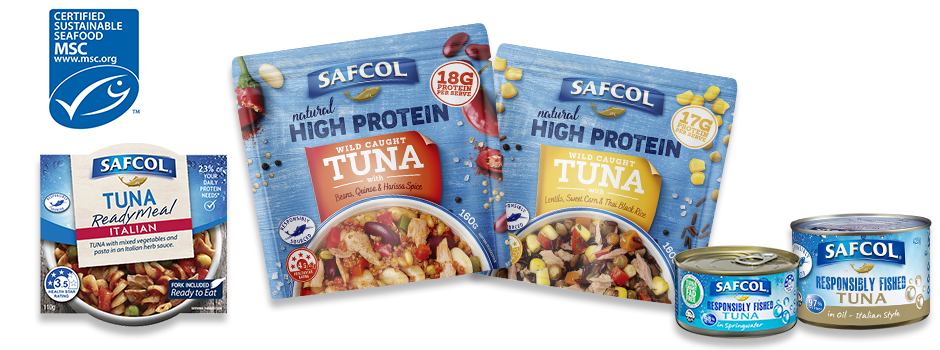How Seafood Can Reduce Your Risk of Postpartum Depression
Posted on : November 10, 2020
by Ashleigh Feltham
Accredited Practising Dietitian and Accredited Nutritionist
You are not alone if you suffer from postpartum depression. 15-20% of mothers and one in ten fathers will suffer postpartum depression. A huge change has just happened in your life which is both psychological and physical and this can trigger postpartum depression. It is a condition associated with disturbances in the signalling in your brain by your neurotransmitters. It causes havoc to your hormone balance specifically for two of the hormones which influence a good mood called serotonin and dopamine.
There are factors which you cannot influence which can increase your risk of postpartum depression such as family history but there are many factors which you have control over that can reduce your risk. One of these factors is the diet you choose both during and after giving birth.
The rates of postpartum depression have increased with more people following a typical western-based diet. High in saturated fats, processed meats added sugar and salt and not meeting the needed serves of food groups your body needs each day for health. The typical western diet is often low in many nutrients important for health and this includes omega-3 fat and iron.
Omega-3 fat is an essential fat, meaning your body needs to obtain it from your diet. It is linked to many health benefits including improvements in mood. During pregnancy and breastfeeding one part of omega-3 fat found in foods like Safcol Seafood called DHA is reduced. The two fatty acids of omega-3 fat found in seafood called EPA and DHA are both linked to improvements in mood. EPA influences the chemical messengers which are needed to create a good mood feeling.
A second nutrient which research suggests is important in reducing your risk of postpartum depression is iron. Iron is used during pregnancy and can also be lost during birth. Iron is needed to make enzymes which create the hormones which improve your mood. One study found that iron supplementation provided early to women or men, suffering from postpartum depression was linked to an almost 43% reduction of symptoms over 6 weeks. Supplementation is important but remember whole food sources like Safcol Seafood are also a good source of haem iron. Haem iron is the type of iron which is better absorbed than the plant-based or a non-haem iron source.
Here are some helpful tips you can add into your day and week:
- Aim to include iron-rich food with each meal.
- Eat seafood 2-3 times a week with a serving like a 100g of cooked seafood,
- Remember the other food groups which provide plant source of iron like whole grains, fruits, green leafy vegetables, legumes, nuts and seeds and dried fruit like apricots.
- Get a blood test to check your levels of iron and your omega-3 status and if needed seek the support of an Accredited Practising Dietitian.
Take home message
You are not alone if you are suffering from postpartum depression. Seek professional advice from your doctor and remember you do have control over many aspects which can improve your mental health, one aspect is your diet.

Reference:
- Bodnar LM, Wisner KL. Nutrition and depression: implications for improving mental health among childbearing-aged women. Biol Psychiatry. 2005 Nov 1;58(9):679-85. doi: 10.1016/j.biopsych.2005.05.009. Epub 2005 Jul 25. PMID: 16040007; PMCID: PMC4288963.
- Beth Levant, “N-3 (Omega-3) Fatty Acids in Postpartum Depression: Implications for Prevention and Treatment“, Depression Research and Treatment,vol. 2011, Article ID 467349, 16 pages, 2011.https://doi.org/10.1155/2011/467349
- Sheikh M, Hantoushzadeh S, Shariat M, Farahani Z, Ebrahiminasab O. The efficacy of early iron supplementation on postpartum depression, a randomized double-blind placebo-controlled trial. Eur J Nutr. 2017 Mar;56(2):901-908. doi: 10.1007/s00394-015-1140-6. Epub 2015 Dec 29. PMID: 26715522.



